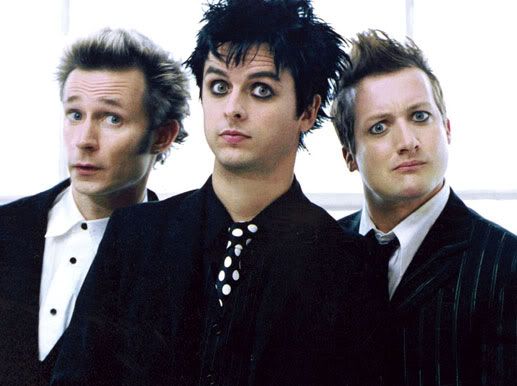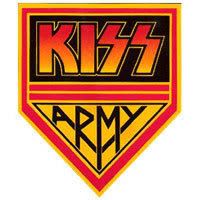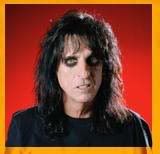I recently got in touch with a friend of mine to discuss some things relating to the music business and what he does as an artist manager at
Coalition Entertainment in Toronto. Liam Killeen was gracious enough to lend his time and insight and I think you'll all get a lot out of this, so I encourage you to take the time to read this interview.
A LITTLE BIT OF BACKGROUND
Liam began as the drummer in a pop/punk band you may know called
Not By Choice from 2002 to 2005 enjoying a good deal of success in the form of a major record deal, two top-ten singles, a Much Music Video Award and international tours with
Sum 41, Simple Plan, Avril Lavigne and many more. He spent the next three years out on the road as the tour manager for
Thornley, Metric, Faber Drive, Idle Sons, April Wine and
Simple Plan in addition to playing live with
Rex Goudie, Cute Is What We Aim For and
Thornley. In early 2009 he joined Rob Lanni and Eric Lawrence at
Coalition Entertainment and he's currently managing acts such as
Hail The Villain, Faber Drive and producer
Greig Nori (Sum 41, Iggy Pop, Ludacris, Hedley, Marianas Trench, The New Cities).
http://www.coalitionent.com/1. How did you make the transition from being in bands to managing bands?
When it looked like Not By Choice was coming to an end, I think everyone was pretty burnt out when it came to the industry. I was the only one that really wanted to stick with it and see what else was going on. I started to take on a few sessions for bands that needed a drummer on their records. Fortunately, Not By Choice still meant something and I was able to get some good gigs which got my name out there. At the same time, I started breaking into tour management. Making budgets, dealing with logistics, just putting it all together really interested me. Between playing and tour managing, I was starting to burn out. Developing new talent has always been something I was into, so I was able to go into Coalition with a pretty decent resume. It feels like a very natural fit.
2. What do you and your partners at Coalition look for in a band before you’ll take them on?
Songs. I know that sounds so simple, but it’s not. I get pitched on 10-15 bands a week, all of them with a gimmick, or good fashion sense, or a good work ethic etc etc. At the end of the day, if I’ve listened to your demo once or twice and can’t remember a particular song the next day, or even the next week…you’re not ready. Everyone seems to focus on the aesthetics of a band, and I’d be lying if I didn’t say that it plays a part…but you can teach someone how to dress, you can’t teach them to write amazing songs. It doesn’t matter how much you spent on the recording, or who you got to produce it… just make sure that at the end of the day, you’re confident about the music. Dedication is a close second. You need to realize that you’re not going to make much money, and potentially going to live in a van for a few years. If I can tell that to an artist and they don’t flinch, it’s a good start.
3. Are there any new artists you have your eye on?
I’m working pretty clocely with a band called ‘Incura’ from Vancouver
http://www.incura.net/ . My partners and I saw them at the Junos in 2009, and it was mind blowing. I haven’t seen confidence in a band like that in YEARS! The band is originally from Lethbridge, Alberta and made the move to Vancouver together. It’s great to see a band that’s willing to re-locate, basically, risk it all for their music. They’ve been writing for the past year, and there should be a release in 2011.
4. Obviously the industry has changed vastly in the last 10 -15 years and the old business models are just not working anymore. Are there any words of encouragement that you can offer to those who are frustrated by the increase in piracy and reduced record sales?
It’s pretty obvious that it will never be like the ‘old days’ again. It’s a waste of time to complain about it. I’m not against people downloading music illegally, but I think there’s a responsibility that comes with it. When you buy a new car, you get a chance to test drive it. If all of the car commercials turn out to be smoke and mirrors, you’re able to figure this out on the drive, and you don’t buy the car. This is what artists and labels used to use singles for. The artist recorded 3 ‘hits’ and phoned in the other tracks. If you wanted those hits, you had to purchase the entire record. I think that downloading allows you to filter out the artists that aren’t making a truly great album. Now, that being said, I believe that if you really do like the album from front to back, you should support that artist by purchasing the record. If you’re not going to do that, go to the show and buy a shirt. Believe me, it helps. I feel that artists should take this as a challenge to just “Be Better”. You need to be as creative as possible to compete these days, and I don’t believe that’s a bad thing. If you’re passionate about your product, you’ll succeed. People are still buying music, and despite what Live Nation will tell you…they still go to shows. As long as you’re constantly working as a group to make better music, improve your live show, and connect with your fans…they’ll stick with you.
5. I think everyone who’s in the music business probably hits a particular point in their career when they start to ‘get it’ and they gain a great deal of perspective on how this complex industry works. Can you pinpoint a time period or single experience in your career when the light came on for you?
As strange as this may sound, it wasn’t until I was out of the band. It seemed with Not By Choice, we were always busy doing stuff. Whether it be touring, personal appearances, rehearsing, we didn’t really get a chance to sit down and think about it too much. Management would send out our schedules, and we’d do it. I don’t think there was too much thought, with me anyways, about what went into making all of that happen. As a tour manager, I got a chance to work a lot more closely with managers and labels. When you’re not in the band, you get a pretty good perspective on just what it takes to make all of this work, and keep working. I won’t name the band, or the label… but I was out with an artist in the Fall of 2006 on a large-scale national tour. Their album had been out for a few months, and this was a fantastic opportunity to ‘connect the dots’ (people knew the song on the radio, but couldn’t put a face to the band). To be very blunt, the record label didn’t care. There was zero help, minimal press, and not a lot of presence from the reps at the venues. Management was doing all that they could to help, but without everyone working it together…it was doomed.
It was one of the most depressing things I’ve ever witnessed in this industry, and showed me that everyone has to be firing on all cylinders all the time to make it work.
6. Where do you see things going in the next five to ten years with regard to how music makers will be paid for their craft and how music will be used and distributed?
It’s sad to say, but the CD is dead. I’m sad about it because I feel that going out and buying the CD was part of the whole ‘experience’ of getting to know the artist. I used to buy an album, read the liner notes from cover to cover, and play it from start to finish again and again. Before my generation, people did the same with cassettes, and before that it was LPs. While I love the packaging, artwork, and everything else that goes into the physical CD, I really am intrigued by Drop Cards, QR Codes, and Flash Drives.
The benefit of these new methods, is the savings to the artist on the packaging. With spending less on packaging, you can offer your product for a lower price. Let’s hope that labels figure this out.
Artists will still make their money from songwriting, but merchandise, live revenue, and song placements will help keep them afloat.
7. What advice do you have for musicians/artists who are determined to pursue a career in music?
As cliché as it sounds… you have to be prepared to lose it all to gain it all. If you put one hundred percent of your time and energy into your art, you’ll lose money, relationships, more money, sanity, and more money. You will live in a van surrounded by (hopefully) some of your best friends, for the one in a million shot that you will be able to do this as a full-time job.
If you’d like a practical example of what I’m talking about, I urge you to check out an artist named ‘Billy The Kid’. I should preface this with the fact that I don’t work with Billy, and this is a completely unbiased opinion about an artist that I have a great amount of respect for.
www.myspace.com/billythekidBilly used the internet to her advantage by seeking out producers that she wanted to work with. Her persistence paid off and she got to make a record with Raine Maida (Our Lady Peace), and even got Garth Hudson (The Band) to participate in the project. Once she was armed with her music, she hit the road and hasn’t stopped. Playing show after show to build up a fan base has paid off HUGE for her. Odds are, when you first get to a town and no one knows who you are, you have to make an impression. You’re typically playing for friends of the other band, and the bar staff. Some artists will phone in these shows as they don’t know the importance of the ‘Tell Two Friends’ system. If you’re unfamiliar with this, it’s where you put on such a good show, that one person from the show will tell two friends that weren’t there. If you were good enough, this person will try and get these two friends to your next show. You repeat this several times in the same market, and you’ll see your numbers increase.
Billy would finish her set, unplug, and head right over to her merch set up. She met every single person that would meet her, and would SELL SELL SELL!
She’s just starting her new tour this week, playing good venues for good money. She’s able to do this because she has great songs, she’s able to sell her product through her confidence, and this is what makes people become a true FAN.
She was prepared to lose it all, and her hard work is starting to help her gain it all.
If the above paragraphs didn’t scare you, call me.









